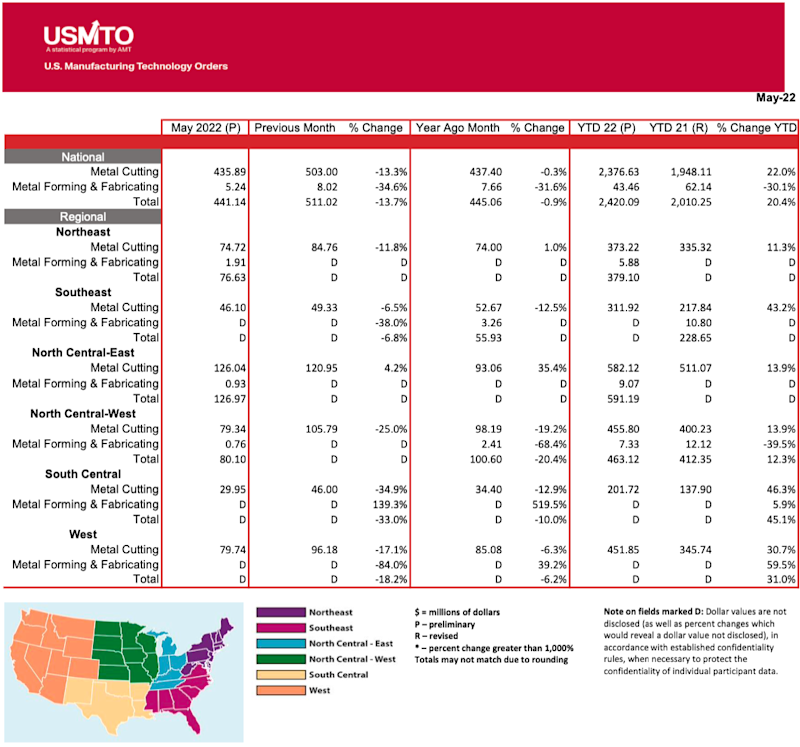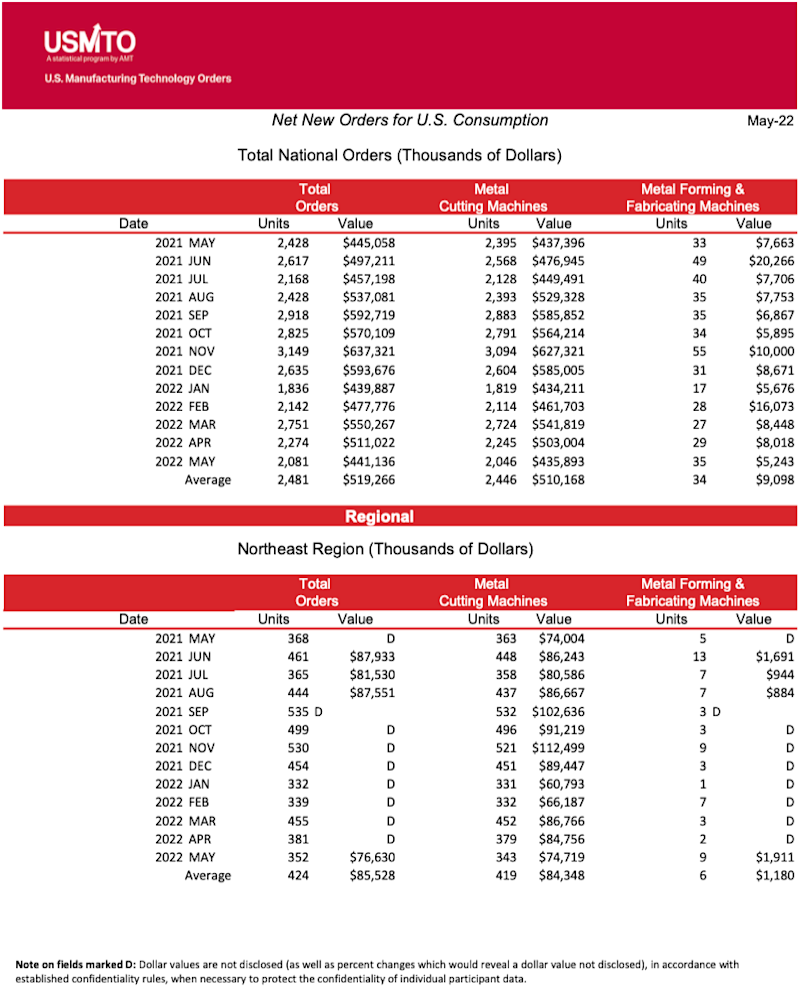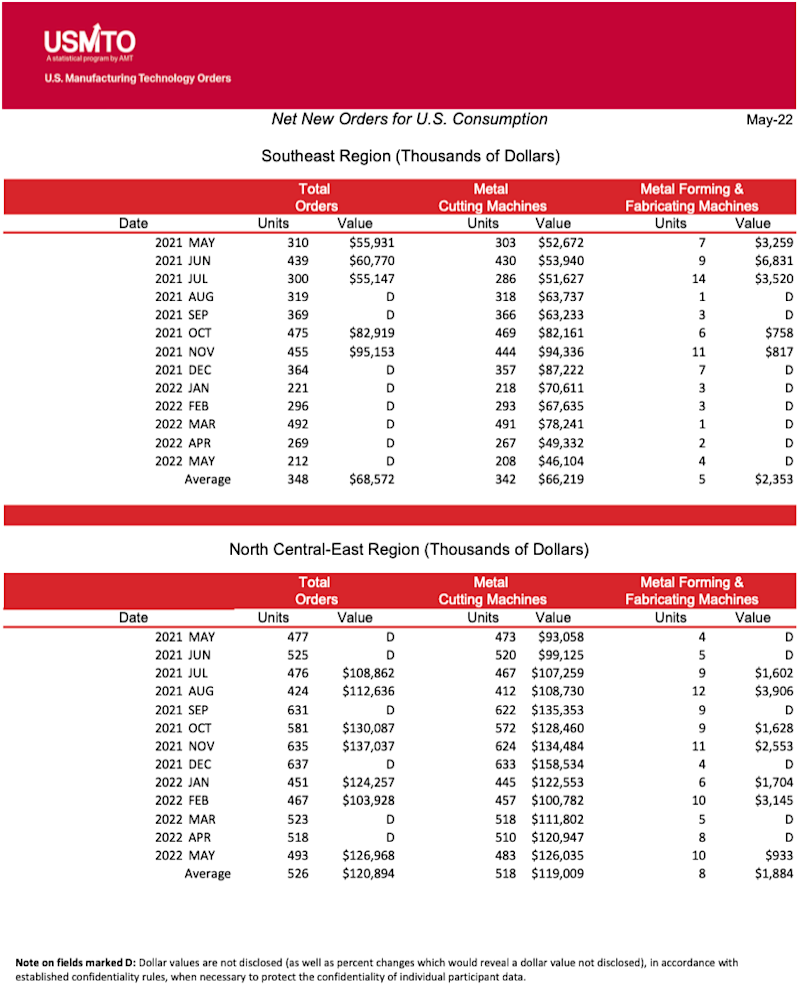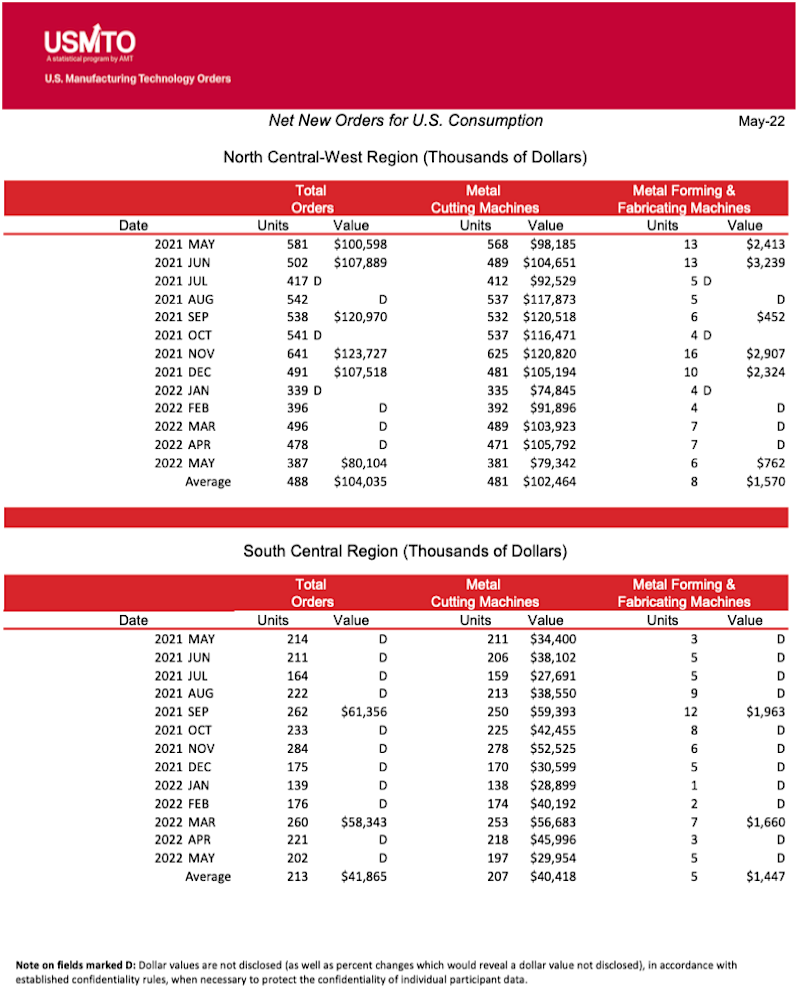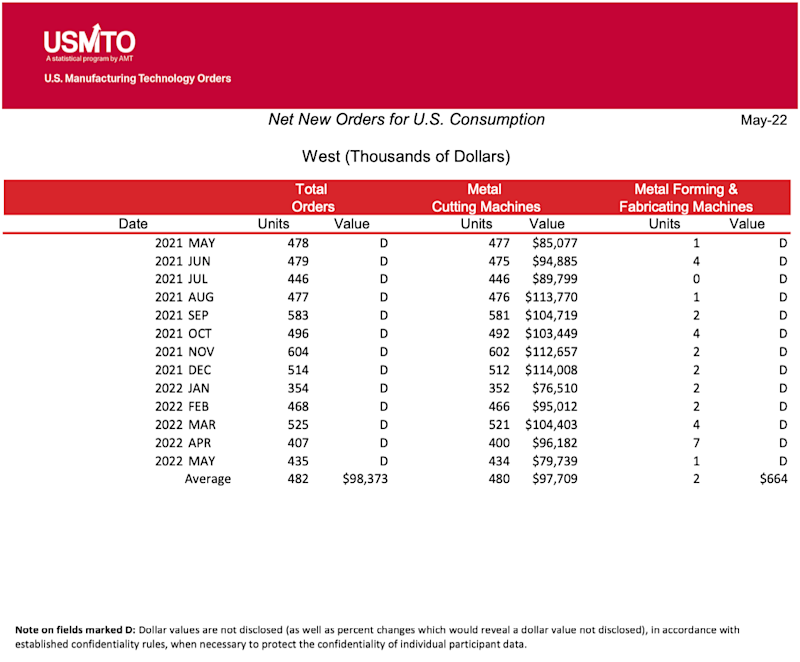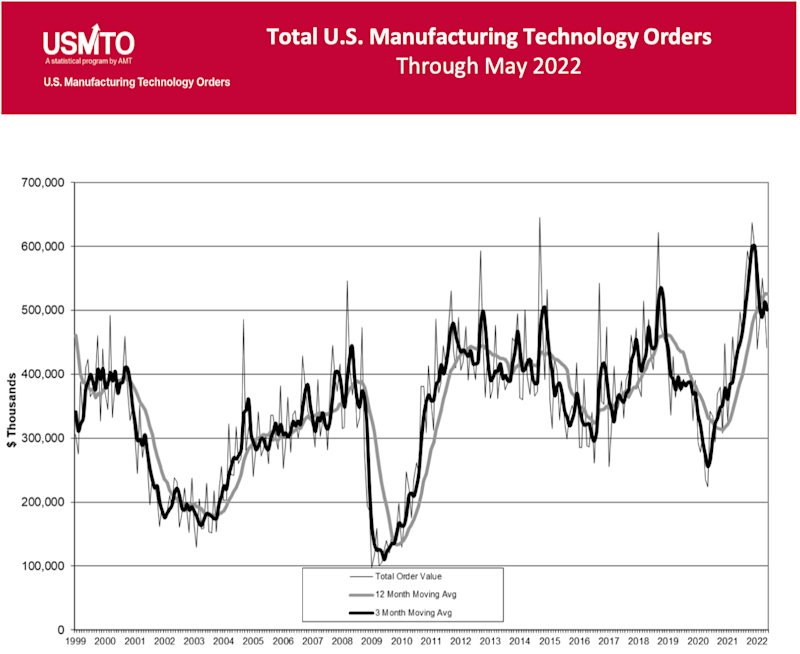Orders of manufacturing technology dipped slightly in May 2022 to $441.2 million, according to the latest U.S. Manufacturing Technology Orders Report published by AMT – The Association for Manufacturing Technology
Orders of manufacturing technology dipped slightly in May 2022 to $441.2 million, according to the latest U.S. Manufacturing Technology Orders Report published by AMT – The Association For Manufacturing Technology. May orders were down 14% from April 2022 but nearly equal to May 2021 orders with a modest 1% decline. Year-to-date orders reached $2.42 billion, a 20% increase over 2021 orders through May.
“Order activity has begun to moderate, but given the slight decline from record heights, 2022 is shaping up to be one of the best years over the last two decades,” said Pat McGibbon, chief knowledge officer at AMT. “In any other year, numbers, as we saw in May 2022, would be one of the high points, but after the run, we’ve seen the previous 12 months, the monthly change is more of a return to normal than a dramatic pullback.”
Since May 2021, the average monthly units ordered and their values have been in the top 25% of the program’s entire history. “There have been modest signs of inflation beginning to take hold in prices for manufacturing technology, but the majority of the rise in average value over the last several months is primarily the result of increased automation as a percentage of the total order,” said McGibbon. “Difficulties filling vacancies over the past several months, concern over rising materials prices and continued conflict in Europe have increased risk aversion among customers, leading to more cautious capital investment decisions.
“The impact of the pandemic on supply chains led to the reinvestment in industries that were nearly shuttered by imports. Industries like the manufacture of mold and dies, fabricated metal products, screws, and hardware have made expanded capacity well beyond their pre-pandemic levels.” McGibbon continued: “In addition to securing supply chains from public health disruptions, there may be a renewed push to further reshore production, given the recent dangers to intellectual property outlined by the U.S. and U.K. intelligence agencies.”
